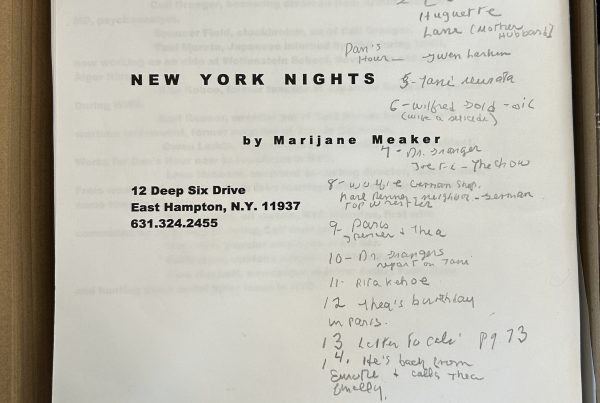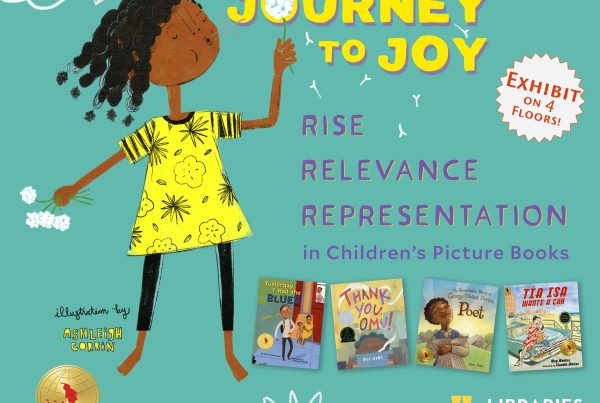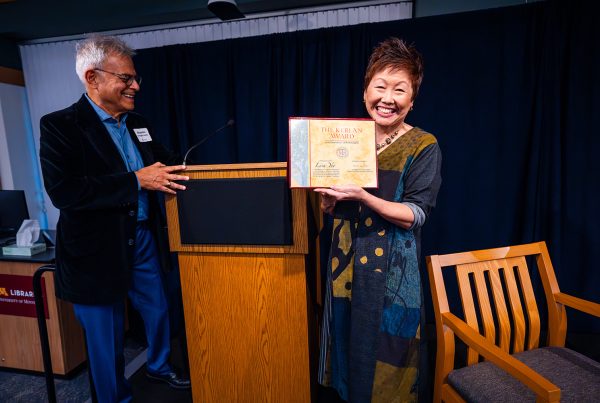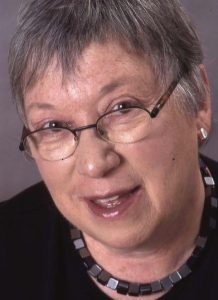
Robie Harris. (Photo/Susan Kuklin)
Last fall I was invited to join Rochester Public Librarian Kimberly Edson to give a talk titled, “An alarming movement in the U.S. to ban books” for the University of Minnesota Retirees Association.
Last year there were 1,269 attempts to ban books across the country. Kimberly Edson and I provided details about which books are being targeted and the impact this movement is having on both school and public libraries.
We spoke about the present attempts of small groups wielding inordinate power and influence to remove books from the shelves of public libraries, school libraries, and classrooms. Books as diverse as “Captain Underpants,” “Little House on the Prairie,” “The Perks of Being a Wallflower,” “Maus,” “Beyond Magenta,” and the perennial “It’s Perfectly Normal.” A startling revelation was that when the Washington Post analyzed 986 complaints against specific books filed during the 2021-2022 school year, it found that the majority were issued by the same 11 people.
Robie Harris
I would not have become a staunch advocate of the freedom to read, of intellectual freedom, and the fight against book banning without author/educator Robie Harris. Harris, who wrote more than 30 books for children, died on Jan. 6, 2024 at age 83 in New York City.
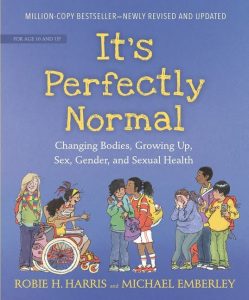 One of the most banned and challenged children’s book authors over the past thirty years for her groundbreaking sex education book “It’s Perfectly Normal,” Robie fought for the right to read for all ages and gathered support from authors, teachers, parents, and librarians to stand against censorship.
One of the most banned and challenged children’s book authors over the past thirty years for her groundbreaking sex education book “It’s Perfectly Normal,” Robie fought for the right to read for all ages and gathered support from authors, teachers, parents, and librarians to stand against censorship.
From Penn America: “Her most famous book, ‘It’s Perfectly Normal’ (illustrated by Michael Emberley), guided preadolescent children on the topic of puberty, their changing bodies, sexuality, and sexual health. It was translated into 27 languages and sold one million copies.
It was praised for normalizing questions about the topic and offering positive messages and accurate information about sexuality and bodily changes. Published in 1994, it was updated numerous times including a 25th anniversary edition. While the title won praise from physicians, child development specialists, and educators for its accuracy, reliability, and for offering children clear guidance on the topic, the book was frequently banned and removed from school and public libraries in the United States with critics citing its unvarnished accuracy and visual representation of the subject and questioning its age-appropriateness.”
Open shelves and the right to accurate information
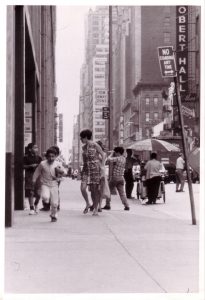
Robie Harris in 1967. The streets of NYC were her classroom.
In the book “You Can’t Say That!: Writers for Young People Talk About Censorship, Free Expression, and the Stories They Have to Tell,” edited by Leonard S. Marcus, Harris shares some of her experiences writing the book, her collaboration with illustrator Michael Emberley, and the censorship attempts of the title.
One startling account was about a ten-year-girl in Delaware who picked up “It’s Perfectly Normal” at the library with her mother. Her mother let her check the book out, and when they came home, she showed her mom the chapter on sexual abuse and said, “this is me.” She was being abused by her father, and it was the first time she’d spoken about it.
The father was convicted, and the judge said, “There were heroes in this case. One was the child, and the other was the book.” Harris wrote in to add that the mother was also a hero in this story, for listening to her daughter, and that the librarian who ordered the book and kept it on open shelves also made this possible.
In the interview with Marcus, Harris said, “I have been called a pornographer, a child abuser — every name in the book, as the saying goes. But whenever I am called one of those names, I think of that ten year old girl. I wish we never had to talk with kids about any of these aberrant behaviors. But we have to do so because they already know about them to some extent and because kids have a right to have the accurate information that can keep them healthy and safe. They need to know how to get help to make any abusive behavior stop.”
Expressing the “big feelings” of early childhood
Author Elizabeth Levy wrote in appreciation, “Robie had a plumb line into kids’ feelings, and a fearlessness about their strong emotions.”
In 1966, she went to Bank Street School for Education for her master’s degree, and almost immediately found a place where her instincts and educational theory matched up. She worked with Irma Black and William H. Hooks, writing segments for the television show, Captain Kangaroo. In a wonderful full circle, in 2008, her book, “Mail Harry to the Moon,” won the Irma Back Award for Excellence in children’s literature, an award voted on by children. In 1967, through Bank Street, Robie worked on a pilot Head Start program in Hell’s Kitchen in NYC, an after-school program for the older siblings of kids in the preschool program.
It was Robie’s books that express the “big feelings” of early childhood, sibling relationships, anger, fear, and grief in fearless developmentally appropriate prose and empathy that are my favorites to read aloud and share: “Mail Harry to the Moon!,” “The Day Leo Said I Hate You!,” “Don’t Forget to Come Back!,” and “Goodbye Mousie.”
I urge our Kerlan Friends to be Freedom to Read warriors. Go to your public library, check out these books, and share them with family and friends. You can thank me later.
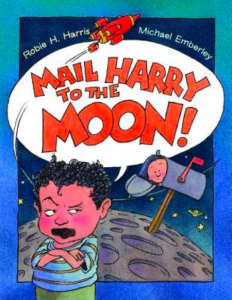
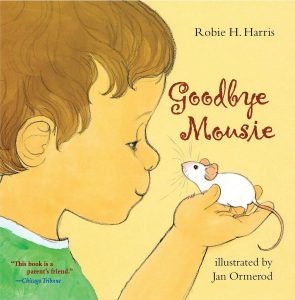
Your Children’s Librarian,
Lisa

Lisa Von Drasek
About Lisa Von Drasek
Lisa Von Drasek is the curator of the Kerlan Collection of Children’s Literature. The Kerlan, an internationally recognized resource in the field of children’s literature, contains six core collections and several smaller collections. Von Drasek has lectured on the topics of Writing Boxes: The Reading/Writing Connection in Libraries, Emergent Literacy, Diversity in Children’s Literature, Comics and Literacy, the New Adult, What Makes an Award Winning Book, and Children’s Choice Awards. She also conducts community workshops on creative writing, reading aloud and selecting books for children and young adults.

